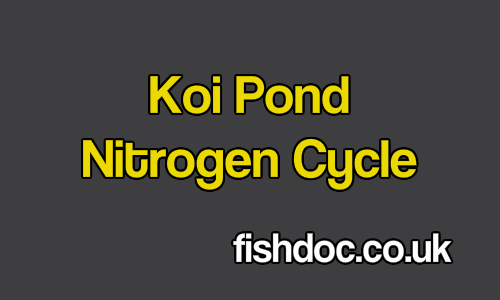
Biological filtration for koi ponds, fish ponds and aquaria- why do we use filters? Let’s be clear from the start (excuse the pun), the primary reason for having a biological filtration system is not to provide clear water – although that might be a beneficial side effect. The purpose of using a filter is to improve ..


